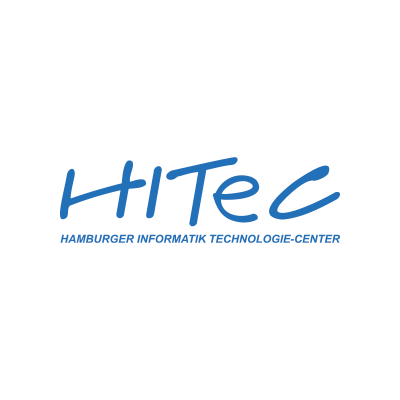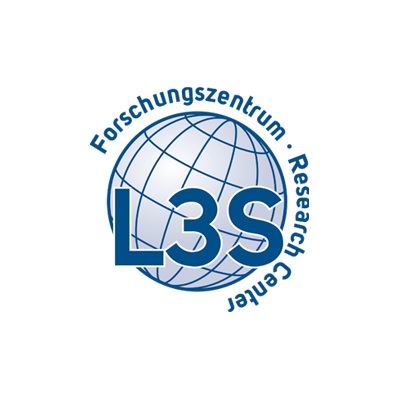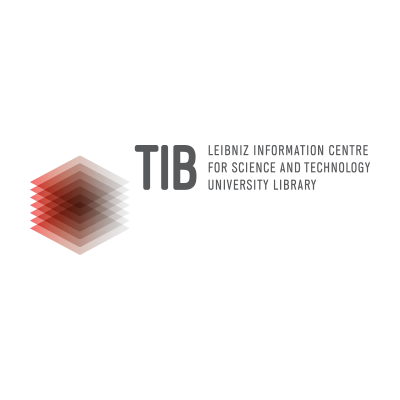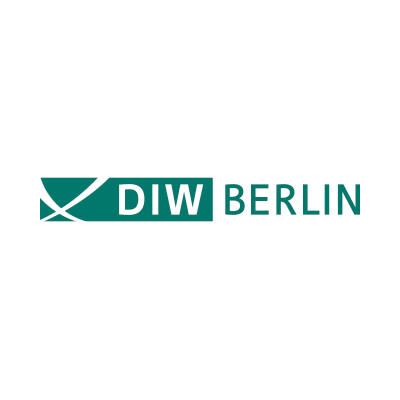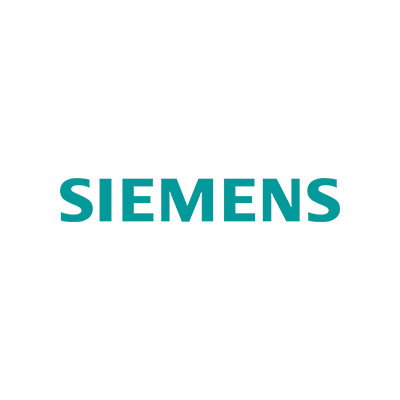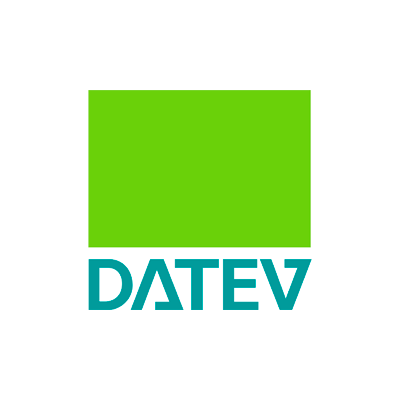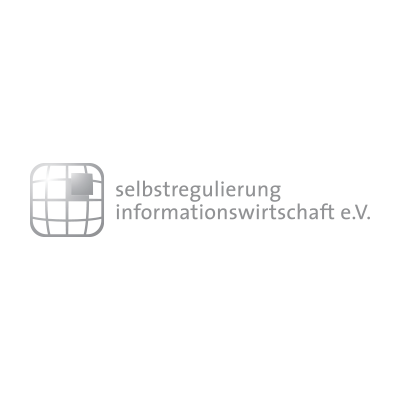Partner
Research Institutes
- Institute for Applied Informatics e.V. (INFAI)
- Hamburg Information Technology Center e.V. (HITeC)
- L3S Research Center, Leibniz University of Hanover
- Leibniz Information Center for Technology and Natural Sciences (TIB)
- German Institute for Economic Research (DIW)
Technology and application partners:
Associations
Network and Associated Partners:
- NEC Laboratories Europe GmbH (NLE)
- IAK Agrar Consulting GmbH (iak)
- AI Hub Saxony (KI-Hub)
- DIW Econ GmbH
- Economic Development of the City of Leipzig (WIFÖ)
- DITAX Strategy Consulting AG
- Müller Blum tax consulting company ltd.
- Tax consultancy Gößmann-Schmitt
- Wirsching tax consulting firm
- Schnacken Panek Hammerbacher tax consulting and law firm PartG mbB
- Social Science Research Center Berlin (WZB)
Institut für Angewandte Informatik e.V. (INFAI)
The Institute for Applied Informatics e.V. (INFAI) is an affiliated institute of the University of Leipzig founded in 2006 and serves as a transfer institute for the purpose of research promotion in the fields of informatics and business informatics. In a wide-ranging partner network of numerous companies, research institutions and sponsors, InfAI's approximately 160 scientific employees develop solutions based on current ICT technologies for various target industries within the framework of research and transfer projects, bring these to product maturity together with companies in a closed value chain, make innovations usable for companies and manage inherent research risks. A special thematic focus of InfAI is the area of intelligent Knowledge Graphs including associated topics such as Open Data, Linked Open Data, ontology creation and manipulation, knowledge extraction, ontology learning, and semantic information and data integration. The application and practice-oriented further development of modern AI methods is another focus of our work, which is explored in particular in the areas of Reasoning, Knowledge-Based Systems, Natural Language and Pattern Recognition.
Role in the project:
- Consortium leader, project management,
- creation of domain ontologies, taxonomies and rule sets
- Knowledge graph creation, management and maintenance, and access management.
- Applicability and use of AI methods on semantically structured data (including semantic reasoning and machine learning)
Hamburger Informatik Technologie-Center e.V. (HITeC)
As a technology transfer institution of the Department of Computer Science at the University of Hamburg, HITeC is networked with numerous industrial partners and promotes start-ups and innovative projects. HITeC continues to be closely networked with industry, the Chamber of Commerce and other research institutions as well as founders and people interested in founding companies through its position as a technology transfer institution at the Department of Computer Science at the University of Hamburg. In this role, HITeC actively contributes to the exploitation of the results. The exploitation takes place through cooperation projects with industry, public authorities or other research institutions. Cooperation projects have a relevant research component. The projects can be carried out bilaterally or through funding from, among others, the EU, BMBF, BMVI, ZIM or regional funding such as IFB. Furthermore, HITeC offers seminars, consultations and studies as well as project support. Due to its independent status, HITeC offers flexible and professional cooperation opportunities between science and practice in the field of IT. HITeC solutions are based on the latest research results and provide advantages through superior technologies, for example in information extraction, data science, knowledge graphs or/and natural language processing. HITeC is a registered non-profit association supported by members of the Department of Computer Science at the University of Hamburg. The association is affiliated with the University of Hamburg through an agreement.
Role in the project:
HITeC is the technology provider responsible for building the central semantic ontologies (WP3) and uses its expertise to enable the linking of the ontology and its data with other knowledge sources. Besides, HiTec will perform the modeling, implementation and evaluation of several cognitive deep learning techniques (WP4) based on structured information to detect temporal and geospatial effects in COYPU as fast as possible. Finally, HITeC will provide a question-answering tool (WP5) to query information from the semantic knowledge graphs.
Forschungszentrum L3S, Leibniz Universität Hannover
The L3S Research Center (www.L3S.de) is a joint research institute of several universities in Lower Saxony, formally associated with Leibniz Universität Hannover (LUH). Work at L3S focuses on innovative and forward-looking methods and technologies for Web Science, a key topic for the European Information Society, and explores the future of information and communication in the Web Age. Projects explore innovative scenarios and solutions in the Web Science areas of Web search (especially entity-centric search), Web information management (including semantic technologies), and the Web of People (including personalization and social Web solutions). The L3S team draws on technologies and approaches from a variety of domains including information retrieval, machine learning, natural language processing, semantic web technologies, data management, and distributed information systems. L3S explores topics such as web archive and social web analysis, diversity and temporal aspects of information, metadata management, event- and entity-based information access, and privacy protection.
Role in Project:
Research and develop state-of-the-art techniques for transforming heterogeneous data into knowledge graphs. These techniques focus on discovering and linking relevant entities in textual material, efficiently implementing pipelines for knowledge graph creation, validating integrity constraints for knowledge graphs, and processing federated queries. In addition, the L3S is conducting research with partners on machine learning methods (unsupervised and supervised) based on knowledge graphs and hyperparameter optimization in AutoML.
Leibniz Informationszentrum Technik und Naturwissenschaften (TIB)
The Hannover University Library of Science and Technology (TIB)23 Leibniz Information Centre for Technology and the Natural Sciences operates the German National Library of Science and Technology for technology, architecture, chemistry, computer science, mathematics and physics, as well as the university library for Leibniz Universität Hannover. As a service provider, it supports specialist and research communities in their learning and working processes and provides a cross-media, reliable research infrastructure. TIB offers a growing portfolio of services in the field of research data management (e.g. DOI) and hosts the international association DataCite. TIB operates a NESTOR-certified long-term archive and, together with FIZ Karlsruhe, has established RADAR, an interdisciplinary repository infrastructure for data archiving and publication.
Role in the project:
TIB will contribute its expertise in Linked Open Data, knowledge graphs and research infrastructures to assist in defining extended use cases, platform and network strategies and legal terms of use in the public domain. Impulses will also be incorporated in the formation of the consortium and development of the implementation concept.
Deutsches Institut für Wirtschaftsforschung (DIW)
DIW Berlin (German Institute for Economic Research) has been one of Germany's leading economic research institutes since 1925. It researches economic and social science interrelationships in socially relevant subject areas and advises policymakers and society on this basis. The institute is networked nationally and internationally, provides research infrastructure that is used worldwide, and promotes young researchers. DIW Berlin is independent and, as a member of the Leibniz Association, is financed primarily by public funds.
Role in the project:
DIW has a spectrum of historical publications and data sources on economic and business cycle history (e.g., construction, energy, consumer figures) dating back to the beginning of the institute's history (Wagemann statistics). Thus, information is available on the three economic crises of 1929, 1968/69 and 2008.These can be used as analogs for future crisis scenarios, as well as training cases. These information sources and the associated data series are already digitally accessible in parts.DIW's research focus is on identifying resilience-determining data parameters and patterns of business cycle development, as well as integrating and re-using the results of the graph databases for research and policy advice.
eccenca GmbH
eccenca GmbH (ECC) was founded in Leipzig in 2013 as a subsidiary of brox IT Solutions GmbH and offers technologies, tools and know-how in the areas of enterprise search, semantic web and linked data. The focus of eccenca is the transformation of scientific research results and latest technologies into sustainable and market-ready software solutions. With the product lines eccenca Corporate Memory and eccenca Enterprise Search Suite, eccenca already offers market-ready technology platforms that provide an excellent basis for successful partner and customer relationships. Companies such as Nokia, Bosch, Siemens or RFS already use eccenca solutions as standardized architecture building blocks for Knowledge Graph applications.
Implisense GmbH
Implisense GmbH is a young technology company from Berlin - and one of the leading providers of sales intelligence. We started with the vision to make sales easier. By offering companies a solution to easily find interesting new customers and to retain existing customers. Without time-consuming research and analysis, but at any time at the push of a button. Like a search engine. To do this, data is collected from public sources that allow search engines to capture it, using methods of Artificial Intelligence and Deep Learning in the field of Big Data, and summarized in clear company profiles. These are made available both in the free portal and as additional services as recommendation software, API or in individual form depending on customer requirements. Implisense offers a platform to connect with over 2 million German startups, hidden champions and smart enterprises and contact opportunities for buying, selling and recruiting. Implisense's founders come from research backgrounds including Stanford University, Xerox Research, and Fraunhofer IAIS. They have brought their complex knowledge of Natural Language Processing and Machine Learning to the development of Implisense. Together with outstanding partners from applied research as well as the information industry, they are working to revolutionize B2B sales in a sustainable way.
Role in the project:
- Provision of company data on over 2 million companies in Germany.
- Analyses to discover company networks based on various criteria (legal, management, web links, etc.)
- Analyses of financial data of companies
- Analyses of texts (NLP), especially questions of entity and relation recognition
- Web-Crawling
- Visual processing of project results
Siemens AG
Siemens AG is a technology company focused on the fields of industry, infrastructure, mobility and healthcare. Resource-efficient factories, resilient supply chains, smart buildings and power grids, low-emission and comfortable trains, and advanced healthcare - the company supports its customers with technologies that deliver tangible benefits. By combining the real and digital worlds, Siemens empowers its customers to transform their industries and markets, improving everyday life for billions of people. Siemens employs more than 300,000 people worldwide, including 42,000 in research and development. The company holds more than 68,000 granted patents. In fiscal 2021, around 2,500 patents were filed and 4,500 invention disclosures were submitted. Based on 220 working days, that is approximately 23 inventions per day. The focus of Siemens AG's sub-project in the "CoyPu" project is the topic of "Resilient Production" with the aim of strengthening risk management with the help of AI and simulation-based processes. In collaboration with other "CoyPu" partners, the challenges of this topic are to be addressed and applied and evaluated to an application scenario from the field of production.
Infineon Technologies AG
Infineon combines entrepreneurial success with responsible action to make life easier, safer and more environmentally friendly. As one of the world's top ten semiconductor companies, the company with its more than 50,000 employees worldwide plays a key role in shaping a better future. With microelectronics, we connect the real world with the digital world. Our semiconductors enable efficient energy management, intelligent mobility, and secure, seamless communication in an increasingly connected world. Infineon designs, develops, manufactures and markets a wide range of semiconductor and system solutions. The focus is on automotive and industrial electronics, communication and information technology, IoT, sensor technology as well as security. Infineon's virtual factory consists of 56 research and 20 production sites. To be able to implement the complex semiconductor production in our virtual factory, a flexible, global and digitalized supply chain is necessary. This enables a competitive advantage within the semiconductor industry. Infineon is therefore actively driving research and development measures in the areas of digitalization and automation in sustainable supply chains. This includes German and European research projects such as Productive 4.0, SC3 and CoyPu.
Role in the Project:
Infineon brings its expertise in supply chains, semiconductors as well as semantic technologies to the project. As the leader of work package 6, Infineon ensures coordination and collaboration in the area of use cases. Furthermore, Infineon is conducting a use case to improve demand forecasting for increased resilience as part of work package 6.1.
Datev eG
DATEV eG (DATEV) is a software house and IT service provider for tax consultants, auditors and lawyers and their mostly medium-sized clients. The company is one of the largest IT service providers and software houses in Europe. The cooperative has more than 40,000 members and over 8,200 employees. Founded in 1966, the company has its headquarters in Nuremberg and 25 branches nationwide. DATEV's range of services includes software for accounting, human resources management, business consulting, tax calculation and the organization of companies and law firms. These solutions enable the interlinking of work processes between DATEV, tax consulting firms and their customers. In this way, the cooperative reaches more than 2.5 million companies, municipalities and institutions. Other services include the high-performance DATEV computer center (e.g., approx. 13.5 million payrolls/month, approx. 41 million vouchers/month, approx. 1.9 million e-balances/year, approx. 138 million social security records/year) and a wide range of training and information offerings. The highest levels of data protection and IT security form the basis of the corporate culture.
Selbstregulierung Informationswirtschaft e.V.
Self-regulation Information Industry e.V. (SRIW) is a non-profit association for the promotion of trust in services of the information economy. An important component is the establishment of national and international credible and effective instruments of self- and co-regulation. The focus of SRIW's work is on the development and monitoring of codes of conduct in the field of data and consumer protection, taking into account the necessary and independent structures. In this area, SRIW is one of the leading experts. Since its founding, SRIW has been involved in the development of credible codes of conduct and acts as an independent monitoring body. SRIW's work takes place at the crossover point from technical developments to legal assessment. For this, it is essential that the technical processes are understood and can also be critically scrutinized for an accurate legal assessment. The SRIW has the expertise and experience required for this through its work on various projects.
Role in the project:
Through the early and continuous monitoring of the technical developments to ensure the legal admissibility of the overall project results, the SRIW contributes on the basis of its expertise, among other things, to ensuring widespread acceptance of the platform to be developed. An essential element here is the integration of an adequate balance of interests in order to contribute to the promotion of consumer and data protection in the project. Furthermore, SRIW supports the development of an overall exploitation strategy by combining individual exploitation strategies of the partners involved as well as the moderation of an overall exploitation of the project.

